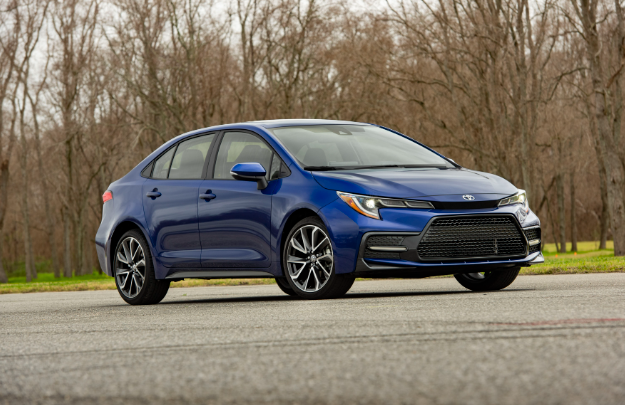Is Your Vehicle Keeping You Poor?

According to MarketWatch, the average sale price for a new car in January 2024 was a staggering $47,401. That's a hefty price tag if you're simply looking for reliable transportation. However, changing how you purchase your next vehicle could save you $232,591 over 20 years.
We all know that neighbor who drives a fancy truck for everyday tasks like commuting, grocery shopping, and running errands, but rarely uses it for its intended "truck" purposes. While it's easy to get attached to the allure of owning a high-end vehicle, it's important to consider the real costs involved.
As someone passionate about cars, this topic is tough to tackle. However, it's crucial to examine the financial impact of vehicle ownership. While I dream of owning a Porsche or something similar once I'm well into my Fat FIRE journey, now is not the time.
I understand that some people need specific vehicles for work or have unique commuting needs. If you have an electric vehicle and can charge it for free at work, that's fantastic. This article isn't directed at you, but the principles still apply. For instance, you might consider opting for a less flashy version of the vehicle you need.
For the rest of us, based on the average purchase price, we're likely overspending on transportation. Why? Who are we trying to impress? Most people aren't amazed by your BMW, Mercedes, or Platinum F-150. Additionally, these brands often come with higher maintenance costs and reliability issues.
Breaking Down the Costs
Let's compare the costs of the average financed car purchase with a 4-year-old Toyota Corolla or Camry bought with cash.
Purchase Price:
- 2020 Toyota Corolla: $20,000
- Average Vehicle: $47,401
Financing Costs:
- 2020 Toyota Corolla: $0 (paid in cash)
- Average Vehicle: If financed at 6% interest over 60 months, the total interest paid would be $7,661.20, resulting in a monthly payment of $911.02.
Comprehensive Insurance:
- 2020 Toyota Corolla: No comprehensive insurance needed since it's bought with cash, and it's a small portion of my net worth. Instead, I carry a substantial umbrella policy for liability.
- Average Vehicle: Financed vehicles typically require comprehensive coverage. According to MarketWatch, the average cost is about $1,300 per year, totaling $6,500 over five years.
Depreciation:
- 2020 Toyota Corolla: Depreciates approximately $8,352 over five years.
- Average Vehicle: Depreciates approximately $19,627 over five years, $11,275 more than the Corolla.
Taxes (Tennessee State):
- 2020 Toyota Corolla: $1,400 (excluding county taxes)
- Average Vehicle: $3,318 (excluding county taxes), which is $1,918 more.
Maintenance:
It's difficult to estimate maintenance costs for a hypothetical car, but luxury or less reliable brands like Land Rover, Mercedes, or BMW generally have higher maintenance expenses.
Investing the Difference
Let's calculate the potential investment growth if you saved the difference in ownership costs:
- Purchase price: $27,401 more
- Financing cost: $7,661 more
- Comprehensive insurance: $6,500 more
- Depreciation: $11,275 more
- Taxes: $1,918 more
These additional costs total $54,755. Investing this amount at an annual return rate of 7.5% could grow to approximately $232,591.09 over 20 years. This is a conservative estimate since it excludes higher maintenance costs.
How I Budget for New Cars
I save $100 per week towards my next vehicle purchase, investing these funds in lower-risk T-Bills and a portion in an S&P ETF. This approach helps me avoid financing costs and mandatory comprehensive coverage. Since I buy vehicles that are a fraction of my net worth, I'm not concerned about insuring a depreciating asset. I can replace the car if needed. If I were buying expensive vehicles, I would need comprehensive insurance.
If you don't have the money to buy a car with cash, you can still benefit from purchasing a lower-cost car, working towards paying it off, and starting your own vehicle fund to escape the mandatory financing loop. Even if you only saved $60 per week for six years, at 6% interest, you would have approximately $22,517.66 to apply toward your next purchase.
Is Full Coverage Worth It?
Full coverage car insurance, which includes comprehensive and collision policies, covers the actual cash value of your car if it's totaled. This financial protection can offer peace of mind and is usually worth it in the following situations:
- Your vehicle is leased or financed
- You have a newer vehicle (less than 10 years old)
- You can't afford to replace your vehicle out of pocket if it's destroyed
- Your car is a high-value luxury vehicle
When Is Full Coverage Not Worth It?
As your vehicle ages and its value drops, full coverage may become less worthwhile. Once your car is over 10 years old, it's generally not worth purchasing full coverage insurance. To decide, compare your car's value using a tool like Kelley Blue Book against your expected premiums. If your annual premiums are close to your car's value, consider skipping full coverage.
Conclusion
Reevaluating your vehicle expenses and considering less costly options can free up significant funds for investment, helping you achieve long-term financial goals. By budgeting wisely for your next car and considering whether full coverage insurance is necessary, you can make smarter financial decisions that benefit your overall financial health.